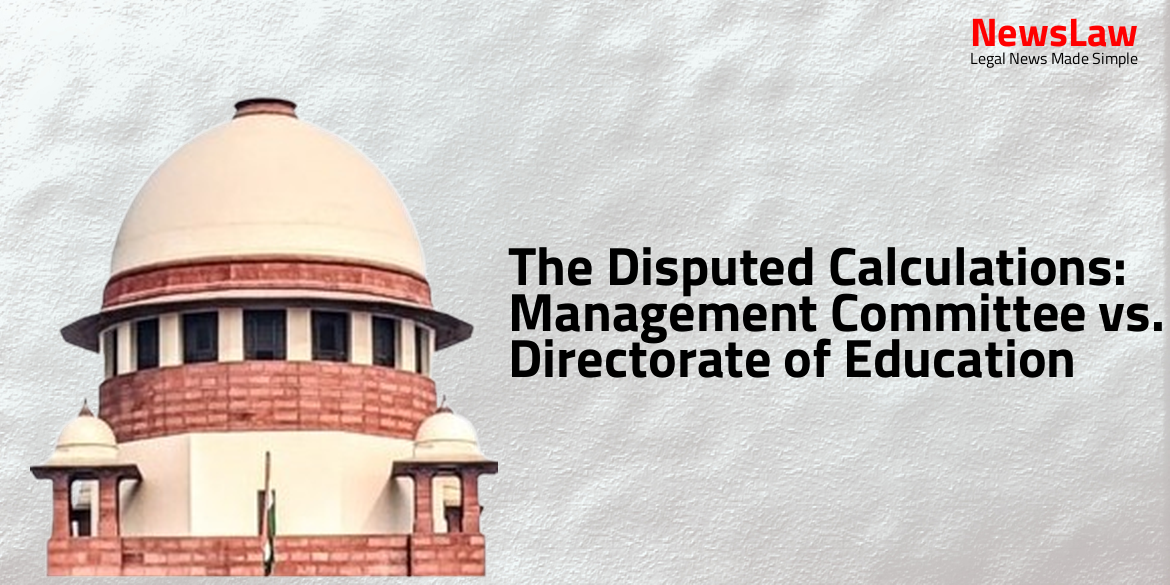Explore the detailed summary of the legal case involving MTNL and Mafatlal. This case delves into arbitration issues, contract disputes, and the complexities of claim settlements. The Delhi High Court’s judgment sheds light on crucial aspects of commercial law and arbitration proceedings.
Facts
- MTNL filed a statement of defence and counterclaims.
- MTNL challenged the amounts awarded in favor of Mafatlal and the denial of its counterclaims.
- MTNL’s challenge under claim No.3 involved a request for the appointment of a receiver to dispose of goods with petitioner, which was countered by the respondent who suggested the petitioner could dispose of goods on its own.
- A local commissioner was sought by the petitioner to ensure transparent sale of goods for correct market value realization.
- The learned Arbitrator awarded a sum of Rs.2,22,77,450 to Mafatlal against claim No.3, conditional on the delivery of the balance quantity of cloth to MTNL.
- MTNL challenged the award, along with Mafatlal and Sandhya.
- The termination of the contract by MTNL led to disputes over payments and damages claimed by Mafatlal and Sandhya.
- MTNL’s actions were taken in the context of a Central Bureau of Investigation investigation regarding the contract award to Mafatlal.
- MTNL made a Section 17 application challenging maintenance costs demanded by Mafatlal.
- MTNL also made an application under Section 17 challenging the quantum of maintenance cost demanded by Mafatlal.
- The Award is contradictory as it holds Mafatlal to the obligation of mitigation but still awards damages without proof of mitigation.
- Damages were awarded for the use of Mafatlal’s godown and moth-proofing of goods.
- The damages were calculated based on specific rates for the godown space and moth-proofing services.
- The learned Arbitrator erred by granting damages at the ‘cost price’ of the cloth despite MTNL not attempting to mitigate by selling the cloth in the open market.
Issue
- The issue at hand is whether the respondent could invoke clause 6 of the Conditions of Contract after the claimant had manufactured and offered the supplies of the balance quantity within the stipulated period.
- The claimant had already produced and offered to deliver the balance quantity of supplies on time as per the schedule.
- The key question is the timing of invoking clause 6 and its applicability once the claimant had fulfilled its obligations.
- The focus is on the respondent’s ability to rely on clause 6 after the claimant had met the delivery requirements stipulated in the contract.
Arguments
- The contract did not provide for recovery of the price by Mafatlal, resulting in the Award granting a bounty to Mafatlal.
- The cost price was erroneously computed by the Arbitrator at Rs.325/- per meter instead of the actual cost of production at Rs.303.40/- per meter.
- Mafatlal is unable to perform its obligation under the Award to deliver the balance quantity of cloth to MTNL as it has already sold the balance quantities.
- The Award is viewed as an award of specific performance which may not have been rightfully granted.
- The deduction made was considered a benefit conferred upon MTNL.
- The goods in question were specifically manufactured for MTNL, justifying the acceptance of claim No.3 by the Arbitrator.
- In the Section 17 application filed by MTNL, there was no suggestion that the goods could have been disposed of or sold, only a dispute over storage charges was raised.
- Mafatlal was obligated to preserve the goods as per the orders of the Arbitrator under Section 17 of the Act.
- The Arbitrator should have granted recovery of the entire contract price to the claimants according to Mr. Rustagi.
- The Arbitrator erred in awarding the amount on account of the price of the cloth to Mafatlal instead of Sandhya, the contractual entitlement holder.
- The judgment of the Supreme Court in Maharashtra State Electricity Distribution Co. Ltd. v. Datar Switchgear Ltd. was referenced to support the claim that mitigation was not necessary for goods customized for a particular purchaser.
- Under Sections 21 and 26 of the Sale of Goods Act, 1930, the goods were tendered to MTNL in a deliverable state, passing the property and associated risk to MTNL.
- Mafatlal offered the goods to MTNL but they were not accepted, giving Mafatlal the right to exercise a lien on the goods and to resell them as per Sections 44 and 46 of the Sale of Goods Act, 1930.
- Claim No.6 was criticized for lacking evidence, as highlighted by the Arbitrator.
- MTNL consented to deletion of Sandhya from array of parties in the Award.
- The Arbitrator estimated damages for quantification purposes as entitlement to arrive at an estimate.
- Disputed the characterization of the Award as specific performance.
- Undertook that Sandhya would not claim separately if the Award is in Mafatlal’s favor.
- Cited judgments to support arguments – Connaught Plaza Restaurants Pvt. Ltd. v. Mr. Niamat Kaur and National Highways Authority of India v. Sunway Construction SDN BHD.
- Mafatlal filed the statement of claim jointly with Sandhya, indicating no dispute between them.
- Admitted lack of evidence for moth-proofing cost and agreed not to press for it.
- Offered credit to MTNL for Rs. 25,58,967/- for the goods accepted in terms of the Award.
Analysis
- The Arbitrator assessed the value of the storage facility of Mafatlal and the cost of moth-proofing the cloth as elements of the Award.
- MTNL filed an application to remove Sandhya as a claimant in the arbitration, which was allowed by the Arbitrator.
- The Court rejected the challenge against the award of mesne profits based on the claimant’s evidence.
- MTNL’s application under Section 16 and 19 of the Act contended that there was no arbitration agreement between MTNL and Sandhya.
- The Arbitrator computed damages based on the cost at which Sandhya was to procure the goods from Mafatlal, not Mafatlal’s production cost.
- The Arbitrator’s decision to award damages on the ‘actual cost price of the cloth’ instead of the contractual price was upheld.
- The Court observed that MTNL’s refusal to accept the balance quantity of goods before the contract completion date constituted a breach of contract.
- An appeal for damages on the ground of failure to sell the goods to mitigate losses was rejected, as the goods were produced to the specific requirements of the buyer.
- The Court noted that the Award did not direct specific performance and that the goods were sold in accordance with the Court’s orders.
- The Award on the claim for the balance supply of uniform cloth was set aside, as the specifications of the cloth in the contracts were found to be different.
- The Arbitrator found no infirmity in the finding regarding the refund claim for commission at the rate of 15% paid by Mafatlal to Sandhya.
- The contract terms specified a composite contract price of Rs. 369.50/- per meter, leading to the rejection of the refund claim by the Arbitrator.
Decision
- OMP(COMM) 42/2017 and OMP(COMM) 62/2017 dismissed as not pressed
- Award for claim No.6 set aside in OMP(COMM) 34/2017 filed by MTNL
- Claim No 3 not reopened at the instance of MTNL
- Mafatlal and Sandhya’s challenges to the Award not pressed
- Challenge to the rest of the claims and denial of counterclaims rejected
- Mafatlal free to invoke arbitration afresh on claim No.3
Case Title: MAHANAGAR TELEPHONE NIGAM LTD Vs. M/S MAFATLAL INDUSTRIES LTD (2024:DHC:4563)
Case Number: O.M.P. (COMM)-34/2017



